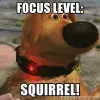I never do, and don’t understand why someone would.
Try to admit when I don’t know much about a topic and learn as much as I can from other people about it without interrupting them.
I try to adhere to T.H.I.N.K
Is it True? is it Helpful? Is it Important? Is it Necessary? Is it Kind?
Depending on the situation and the company, I try to check off all 5 and if it doesn’t, I won’t say it.
It’s a good guiding standard that I don’t always meet, unfortunately, but I’m only human. If I realise I’ve missed the K factor later I will apologise.
My friends know me well enough as a know it all, so they’re comfortable with making fun of me when I get all unnecessarily gabby on a subject. I’m cool with it.
I try to learn something new, but tangentially related. The beginners mindset helps my ego from getting big.
Similarly, I’m just permanently bad at stuff. Not intentionally but for example my dyslexia is a constant reminder of my own limitations.
Talk less and listen more.
A quote from Epictetus comes to mind.
“The gods gave us two ears and one mouth so we may listen twice as often as we speak.”
Ask yourself if this person WANTS to hear what they should have done.
Someone may be talking about how they were trying to do something for the first time and the challenges they faced, and when you butt in with “What you should have done is…” You think you’re being helpful since this information will save them a lot of frustration next time, but wait until they are done explaining the situation. They may have already figured out what you were going to say, and don’t need your info, or, maybe they are still stuck and could use that info, but wait for them to let you know if it’s wanted or not.
I’ve gotten better at saying “I don’t know”, or “that rings a bell, but I’m not sure, can you remind me”, or “what does that word mean?”. Because I was The Smart Kid™ at school and I carried that on by heading to a prestigious university, I had a hell of a complex about looking stupid. Being smart was so tightly woven into my identity that I struggled to perceive myself outside of a framework of academic success or the nebulous idea of intelligence.
I got a hell of a lot smarter when I learned how to not know stuff though, because I got to learn unexpected things from unexpected sources. I worked on reframing my own intelligence/knowledge wrt my self view, and nowadays, I feel like the thing I’m most proud of is my curiosity, and my openness to learning new stuff.
Was it not Socrates who was told by the Oracle of Delphi that he was the wisest for he proclaimed he knew nothing at all? That parable(?) always stuck with me and although I tried to practice it beforehand, it’s a good reminder that the universe is so vast and we are so insignificantly small. Our entire human knowledge pales woefully in comparison to the breadth of what exists. I only wish I could see it all.
I fuck up.
I avoid correcting/adding people over trivial things. If something would make me sound like a teacher or tour guide, I usually just don’t say it.
When I do decide to speak up (mispronunciations are a big thing for me), I either try to emphasize that I’m doing it out of concern (“I don’t want you to sound silly if you say it in front of others”, which is an honest concern) or I try to sound casual and not act like an absolute authority (“Really? I’ve always heard it pronounced like ______”) That last one has the added benefit of covering my butt if I’m wrong.
I once saw some great advice saying we should celebrate when someone mispronounces a word: it means they learned it from reading.
It reminded me of a time when my uncle was barely literate and pronounced the word ‘esoteric’ as ‘ee-SOTTER-ick’. I realised what had happened, but didn’t really know how to correct him, then found a way to say the word myself in the flow of the conversation.
He never mispronounced it again, and there was no uppity nephew embarrassing his uncle. In the years since he’s published a number of books, so couldn’t be happier for him.
I’m happy for him too
Regularly and intentionally spend time considering the opposite.
This helps you to check your paradigms.
It also helps if you search for content which contradict your current thinking rather than support it, just to get that perspective.
For example, if you’re super organised, a book like A Perfect Mess: The Hidden Benefits Of Disorder may help you to see things in a different light.
i try to remember something Picard once said to Data about limiting one’s answers to information that’s pertinent and contextually-relevant to a situation. people don’t want a lecture when a quick answer will do.
Hah thats season 1! I just watched that episode yesterday or the day before. Picard also told him not to babble which prompted Data later on to catch himself babbling and call himself out
Now that I think about it, was Data autistic?
well, i don’t know about that, but it would certainly be accurate to describe him as neuroatypical.
although… now you have me wondering if I’m on the spectrum.
Autism and ADHD are just things everyone does to some extent, just dialed up to the point of it impacting their lives. Everyone forgets things, everyone can be distracted, everyone can take things literally, everyone can feel uncomfortable in unfamiliar settings, or be overwhelmed by noises. Most people just have a higher tolerance for a lot of those things, or may even have the reverse where too much familiarity or silence can be uncomfortable.
Nuerotypical tends to describe people who cope with those kinds of feelings, or who don’t obsess about their mistakes and roll with it in a way that doesn’t have a significant impact on their lives.
So while you could be on the spectrum, it is also likely that you just became aware of something everyone does and if it doesn’t cause you problems often then you wouldn’t be on the spectrum, which tends to describe a spectrum of symptoms that doe cause problems.
oh, ok. i mean, i do have issues, although they’re likely caused by my raging depression and anxiety disorders, lol
It all makes sense.
Stalking me across communities now?
Very sane and healthy.
Remember how you looked at my comment history and referenced it? Hypocrite.
There’s some significant comorbidity between ASD and anxiety disorders, so it wouldn’t be too surprising.
It’s also a spectrum, so you could be “more autistic” than the average neurotypical, while still not “autistic enough” to actually receive a diagnosis.
There’s some significant comorbidity between ASD and anxiety disorders, so it wouldn’t be too surprising.
true, but there’s also a lot of comorbidity between anxiety disorders & depression and the amazing fuckton of life issues i’m experiencing atm, so it’s probably that. and, not for nothing, but in the decades of therapy i’ve undergone, none of my psychologists or psychiatrists have ever thought to wonder if i had ASD. that’s not to say that i don’t, but one would think that, if i did, one of those many, many doctors would have thought to, at least, test me for it.
perhaps i’ll ask again, though.
perhaps i’ll ask again, though.
I think it really depends on whether you think there’s any benefit that could come from that. In whether you believe having an official label to describe the problem and receiving treatment for it would be worth it for you, or if it would be getting a diagnosis purely for the sake of having the diagnosis. And that’s something only you can know for your own situation.
Yes. So was Spock.
I’m not sure whether or not the android Data could be considered autistic from an in-universe perspective, but I would say that as a character Data was inspired by autistic humans and written in a way that neurodivergent viewers would empathize with. At least that’s how he’s always come across to me, as a neurodivergent trekkie.
neurodivergent trekkie
Well that’s redundant…
/s
Just admit when I don’t know something. Awhile ago someone asked me why birds legs don’t freeze when they’re hopping around in the snow. I could’ve spouted some loose hypotheses, but instead I just acknowledged “I have no clue, would have to ask google.”
With looser, more “the way things are” kinda life principles, it’s helpful to remember that the world is a really big place, and how people act/what they value varies tremendously from place to place. So, “how people are” is actually usually just “how people I’m around are”. This is why people are advised to be careful in choosing who they spend lots of time with.
This is great! I hate when my husband presents his best guess as fact. I don’t care that he’s guessing, just tell me it’s a guess!
If I ask what cleaner to use on marble and he says “use the all purpose cleaner” tell me that’s a guess! Because the all purpose cleaner has citric acid! That’s bad for marble!
I try to check everything, and Google anything I’m unsure of. He just does whatever feels right and then later says, “how was i supposed to know tupperware goes on the top shelf of the dishwasher? I didn’t have one growing up.” If you’ve never used an appliance before, Google it!! I’ve used a dishwasher my whole life, but when I became responsible for the one in our home, I read the manual.
I guess another course of action is to turn it into a discussion. Like “I don’t know, do you think birds have blood circulation in their legs?”. Admitting not to know stuff and to ask follow-up questions is generally pretty good conversation making.
The single biggest thing for me is having a range of knowledgeable and intelligent friends and spending time with them. It very soon puts things in perspective.
I have a pleasant chat with David Dunning and Justin Kruger
Not to correct orther people if it’s not absolutely necessary or being asked to.
ie, I would correct someone who said “drinking bleach can cure covid”. But I wouldn’t if they said “the earth is flat”.
Decade ago, a friend of a friend was building a computer. I suggest they get a SSD for the OS. They said SSDs are a scam and don’t have any advantages over HDDs, and the durability is worse. So I’m like “alright, it’s your money” and stop involved with the matter.
None of your examples would make me think you would be a “know it all” by responding to such idiotic opinions. That would depend on how you challenged the dumb thing they just said
"Oh? Why’s that? " (Said genuinely asking why they hold that opinion) is a perfectly fine response to that kind of idiocy.
Though perhaps we have her different ideas of what a know it all is. “Mansplaining” to me is iconic know it all behavior













